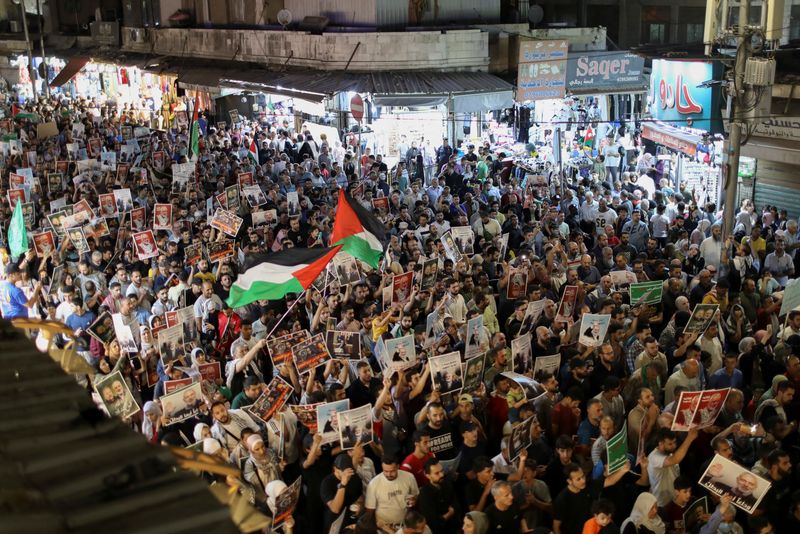DUBAI (Reuters) -Jordan’s Overseas Minister Ayman Safadi concluded a uncommon go to to Iran on Sunday with a plea for an finish to the escalation of violence and for the area to have the ability to stay in “peace, security and stability”.
Safadi’s go to to Iran follows continued diplomatic contacts by america and its companions together with France, Britain, Italy and Egypt to stop additional regional escalation following the assassination of Hamas chief Ismail Haniyeh in Tehran.
Iran and Jordan are additionally looking for to enhance their relations following current tensions associated to Amman accusing pro-Iranian militias in Syria of smuggling narcotics into the nation, and its participating within the interception of Iran’s first-ever direct assault on Israel final April.
“My visit to Iran is to consult on the serious escalation in the region and to engage in a frank and clear discussion about overcoming the differences between the two countries with honesty and transparency,” Safadi mentioned at a press convention in Tehran alongside his Iranian counterpart.
“Jordan has always been proactive in defending the Palestinian cause and the rights of the Palestinian people. It has condemned the Israeli occupation of the Palestinian territories and rejected all of Israel’s escalating measures that prevent achieving security, stability, and a just peace,” he mentioned.
Safadi condemned the assassination of Haniyeh final Wednesday, calling it “a heinous crime and an escalatory step that constitutes a violation of international law and humanitarian law, and an infringement on state sovereignty. We reject it entirely.”
“We demand effective action to stop the Israeli aggression on Gaza, to halt such illegal Israeli measures, and to prevent crimes against the Palestinian people, in order to protect the entire region from the consequences of a regional war that would have a devastating impact on everyone,” he mentioned.
“We want our region to live in peace, security, and stability, and we want the escalation to end.”

Regional tensions have spiked following Haniyeh’s killing, which got here a day after an Israeli strike in Beirut which killed Fuad Shukr, a senior navy commander from the Iran-backed Lebanese group Hezbollah.
Hamas and Iran have each accused Israel of finishing up the assassination of Haniyeh and have pledged to retaliate. Israel has not claimed duty for the demise or denied it.




